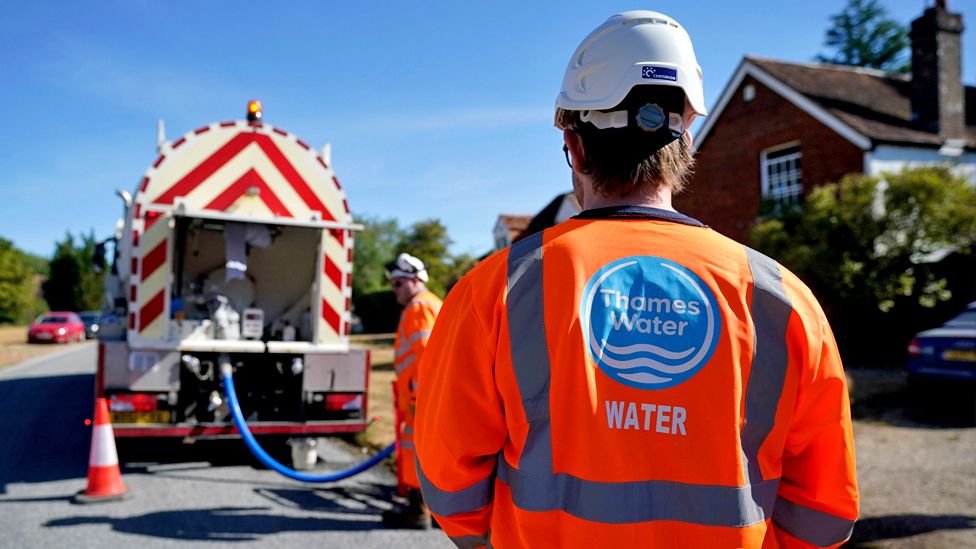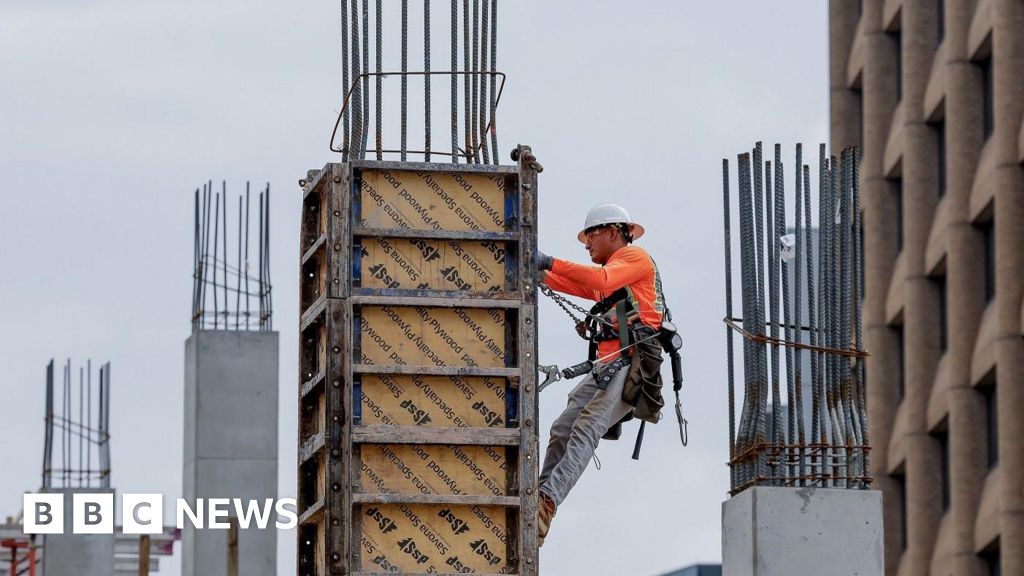ARTICLE AD BOX
 Image source, PA Media
Image source, PA Media
By Simon Jack
Business editor
Thames Water is facing a "seminal moment", its chairman has said, during an intense grilling by MPs on the firm's financial performance.
Senior management admitted the company did not have enough money to pay off a £190m loan due in April next year.
They also warned that if it was nationalised, taxpayers would face a hefty bill.
Concern over Thames' financial strength led to speculation in July that it might be taken over by the government.
Thames, which serves 15 million households, and its parent company Kemble Water, owes a total of £18bn in debt.
Sir Adrian Montague, flanked by acting co-chief executives, admitted that the situation was precarious.
Speaking to the Environment Committee in Parliament, he said: "This is a this is a seminal moment for Thames. You know, we were very fragile in July.
"The chief executive resigned without notice 10 days before a change of chairman. The financial markets took fright.
"We have stabilised the business. We need to make a fresh start. I know management always says this, but it's true in this case, because this is a fresh team."
The numbers are going in the wrong direction for Thames.
Profits fell 54% in the first six months of this year, complaints rose 13%, debt rose to £18bn.
Thames recently announced a £500m cash injection - but that was financed by a further loan to its parent company.
Its own auditors have warned it may not continue as a going concern.
The company has said it will need another £2.5bn of investment in the coming years but that is contingent in part on the regulator, Ofwat, agreeing to household bills increasing by 40% on top of inflation by 2030.
Committee member Barry Gardiner said that amounted to Thames having the regulator "by the short and curlies" - suggesting that if Ofwat did not agree to the rise, it would essentially trigger a quasi-nationalisation that would cost the taxpayer billions.

 1 year ago
32
1 year ago
32








 English (US) ·
English (US) ·